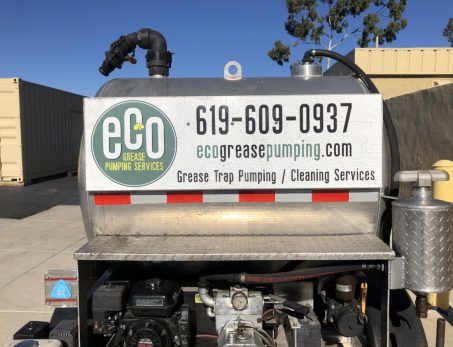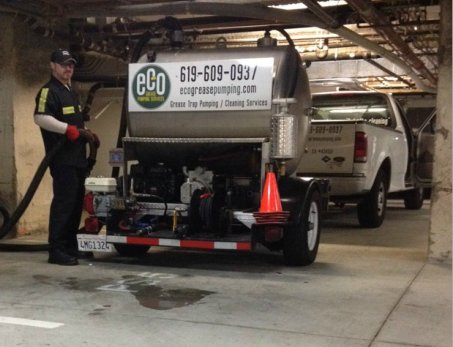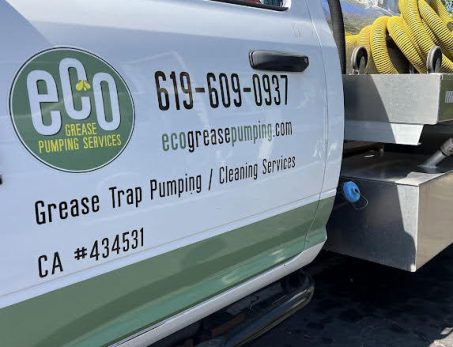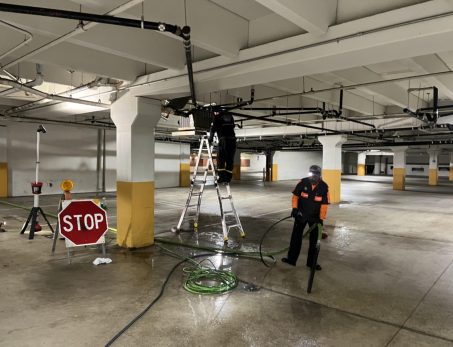Eco Grease Pumping Services
About Us
Eco Grease Pumping Services is a family-owned and operated company that has proudly served San Diego for over 16 years. What started as a small family business has grown into a trusted service provider, helping restaurants, commercial kitchens, and facilities keep their operations clean, safe, and compliant.
We specialize in grease trap and interceptor pumping, and we know how important it is to keep your kitchen running without disruption. No grease trap is too small or too large for us. We have the equipment and experience to handle any size, anywhere.
Our trustworthy, trained, and experienced team is more than just employees they’re part of our Eco Grease family. We treat every client and every job with the same care and attention we give our own, ensuring reliable service and peace of mind.
As a family business with deep roots in the community, we understand the value of trust and long-term relationships. When you call Eco Grease, you’re not just getting a service. You’re partnering with a team that treats your business like it’s our own. We’re available 24/7 by phone or text to respond whenever you need us.
Eco Grease Pumping Services
1-619-609-0937
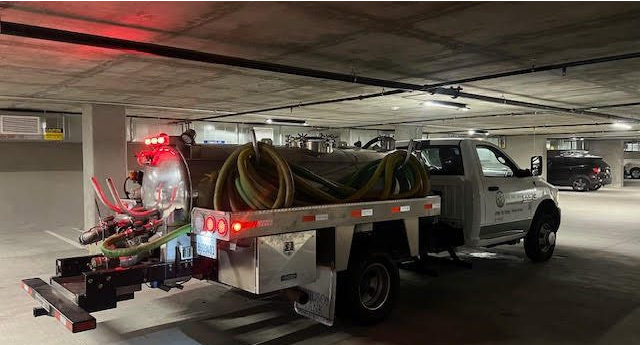
Our Services
At Eco Grease Pumping Services, we handle grease traps and interceptors of all sizes, keeping your kitchen running efficiently. Our experienced plumbing team works alongside us to provide a complete solution, including drain cleaning, snake and hydro jetting services, grease trap replacements, flow control maintenance, and more. No job is too small for us.
With our preventative maintenance package, we guarantee your drains will stay clear. During your scheduled quarterly service, any backups will be cleared at no extra charge.
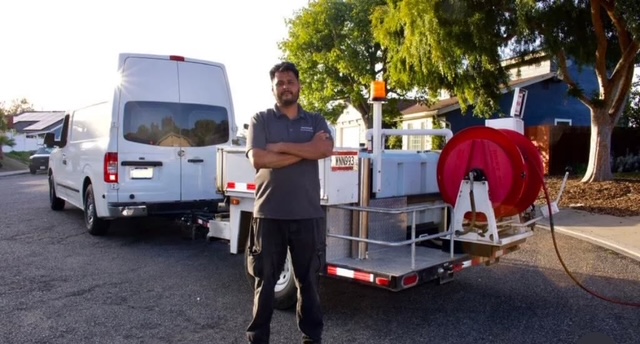
About The Process FAQ
What Is a Grease Trap and How Does It Work?
A grease trap, also known as a grease interceptor, is a plumbing device that captures fats, oils, and grease (FOG)before they enter the sewer system. These systems are essential for restaurants, commercial kitchens, and food-service businesses, preventing FOG from clogging pipes and causing backups.
Because grease and oil naturally float on water, a grease trap slows down the flow of wastewater long enough for FOG to separate and stay inside the trap, while cleaner water continues to the sewer.
Without a functioning grease trap, grease buildup can quickly lead to blocked plumbing lines, costly repairs, and environmental hazards.
The Basics: What They Do
A grease trap (or grease interceptor) is designed to capture fats, oils, and grease — commonly referred to as FOG — before they flow into the sewer system. Since grease and oil float on water, these devices slow down the wastewater flow long enough for grease to separate and remain inside the trap, while cleaner water moves on.
Without this step, FOG would quickly harden inside plumbing and city sewer lines, leading to costly blockages, overflows, and even environmental hazards.
Grease Trap vs. Grease Interceptor. What’s the Difference?
Although the terms grease trap and grease interceptor are often used interchangeably, they serve similar functions with key differences in size, capacity, and installation.
- Grease Trap:
Smaller units typically installed indoors, often under sinks or near dishwashers. Grease traps handle lower volumes of wastewater and are common in small restaurants or cafés. - Grease Interceptor:
Larger, high-capacity tanks usually installed underground and outside the building. Designed to manage wastewater from multiple kitchen fixtures, interceptors are ideal for large restaurants, cafeterias, and commercial kitchens.
Both systems perform the same essential job. Capturing fats, oils, and grease (FOG) before it reaches the sewer. The right solution depends on your kitchen’s size, plumbing design, and local code requirements.
A Brief History of Grease Traps
Grease traps have been an essential part of plumbing systems for over a century. The first grease-separating deviceswere patented in the late 1800s, when cities began struggling with sewer blockages caused by animal fats and cooking oils from early commercial kitchens.
While modern grease interceptors have become more advanced. Featuring improved designs and materials. The basic principle has remained the same: slow the flow of water, capture fats, oils, and grease (FOG), and protect public sewer systems.
Why Grease Traps and Interceptors Are Important
Maintaining a grease trap or grease interceptor isn’t just about preventing plumbing problems. It’s also about compliance, sustainability, and kitchen safety.
Proper maintenance helps:
- Protect your plumbing: Prevents grease buildup that can cause slow drains, backups, and costly repairs.
- Ensure regulatory compliance: Most cities require food establishments to install and maintain grease traps. Noncompliance can result in fines or even forced shutdowns.
- Control odors: A poorly maintained trap can allow foul smells to escape into the kitchen and dining areas.
- Support environmental responsibility: Prevents grease from entering local water systems and harming wildlife.
Why Professional Grease Trap Service Matters
Cleaning and pumping a grease trap or grease interceptor isn’t just about removing buildup , it’s about responsible disposal and regulatory compliance. Licensed haulers like Eco Grease Pumping Services follow strict environmental guidelines to ensure that grease waste is properly collected and kept out of landfills and water systems.
Choosing a professional grease trap service helps you:
- Stay compliant with local city and health department regulations.
- Maintain accurate records for inspections and reporting.
- Prevent costly backups and emergencies before they happen.


